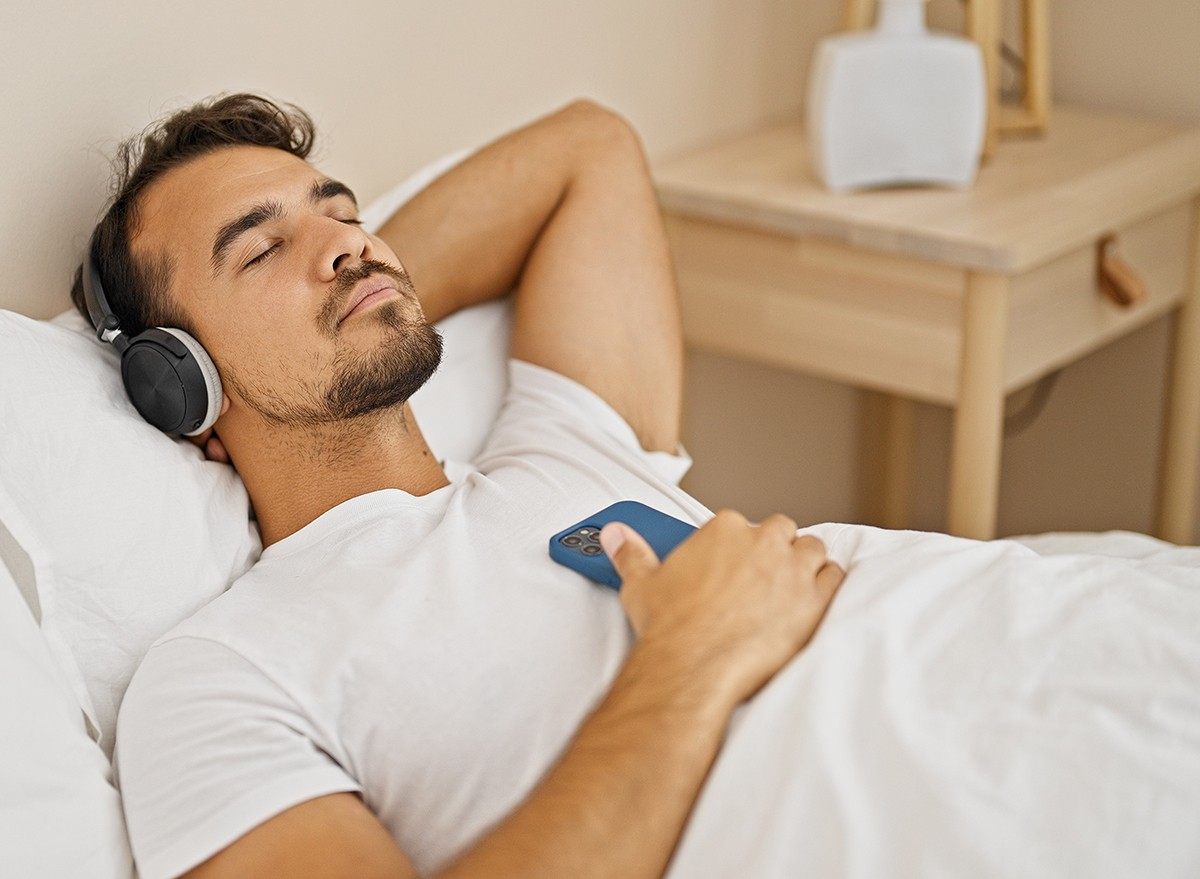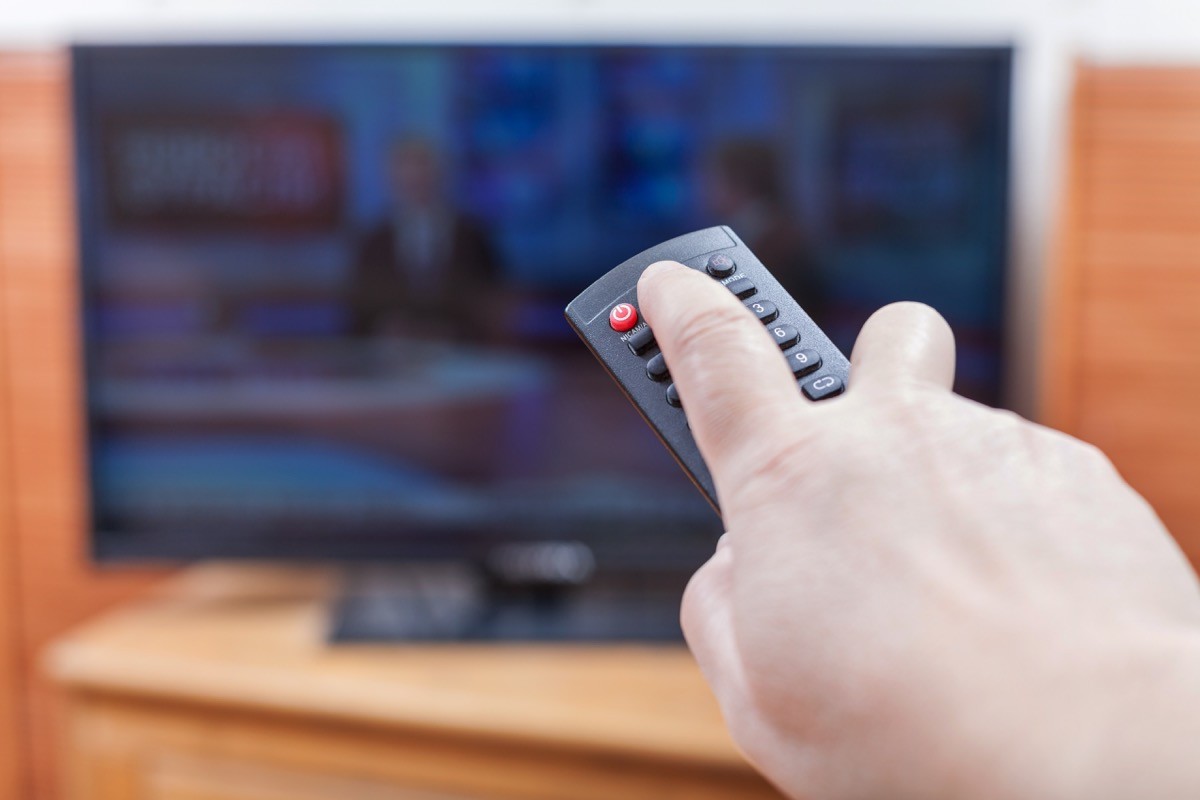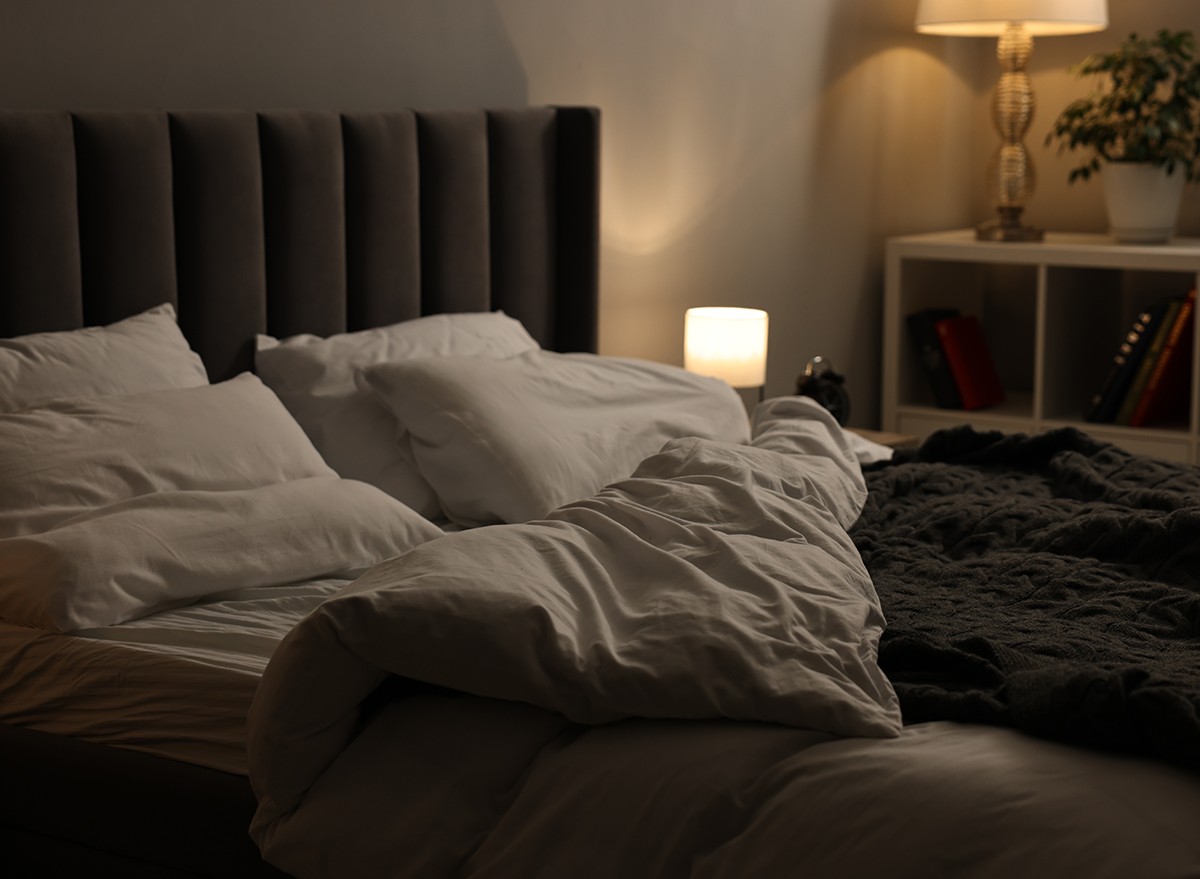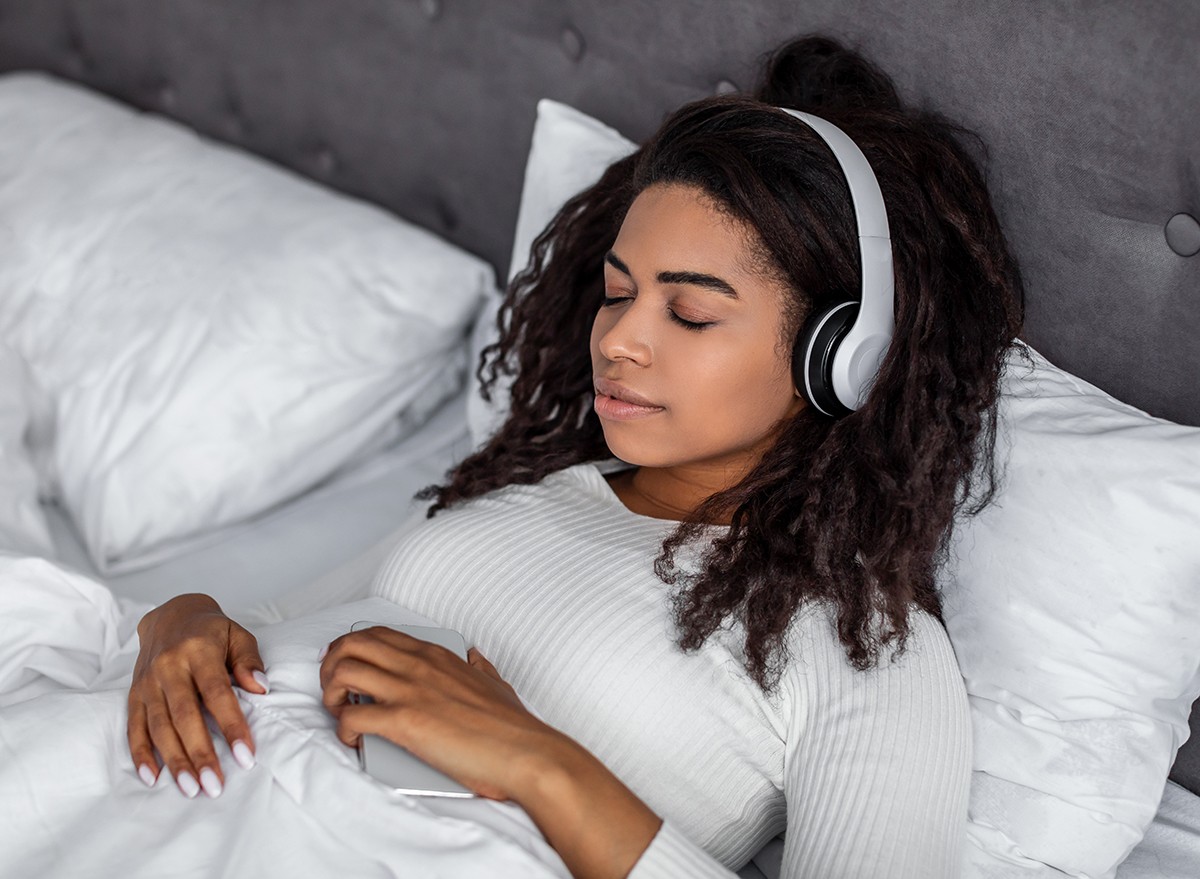Experts Reveal How to Fall Asleep in 10 Minutes or Less

Getting a good night’s sleep is essential for our overall well-being, and a significant contributor to longevity and happiness, but 35% of adults experience insomnia, according to the Sleep Foundtion. Whether it’s due to stress, unregular schedules, medication or other reasons, Americans are sleep-deprived. While there’s no quick fix when it comes to sleep disorders, there are tricks that can help some relax and fall asleep quickly. According to experts Best Life spoke with, here are five tips to fall asleep in 10 minutes or less.
RELATED: Doing This Before Bed Can Help You Sleep Better.
Relaxation Podcasts

To help unwind and fall asleep Dr. Craig Harris Richard, Professor at Shenandoah University suggests a relaxation podcast.
“This can help someone fall asleep faster because they mask disruptive background sounds, distract the sleeper from their own stressful thoughts, and can induce relaxation with gentle voices or sounds,” he explains to Best Life. “The diversity of topics of these podcasts also contributes to their helpfulness because a sleepless person is likely to find a podcast that suits them best.”
Dr. Richard adds, “The content options include ASMR whispering, ASMR trigger sounds, guided meditations, imaginative bedtime stories, classic fiction, curious Wikipedia articles, fun trivia, and fascinating stories from history. The most effective relaxation podcasts often have a host who speaks slowly, softly, and gently.”
Breathwork and Meditation

Breathwork and meditation can improve mood, reduce stress and help you sleep. “Try to set aside 10 minutes before bed for relaxation, breathwork, and meditation,” Jill Zwarensteyn a certified sleep science coach with Sleep Advisor says. “This routine can have more benefits than many believe. It’s not a quick fix for instant sleep, but it can help you wind down and prepare your mind and body for rest.”
Zwarensteyn adds, “After getting ready for bed, put your phone away and spend a few minutes sitting with your eyes closed, focusing on your breathing and relaxing your body. This should help calm your mind and make you feel ready for bed. It also helps you avoid blue light exposure from your phone or TV before bed.”
Turn Off TV

Many people fall asleep watching TV, but that isn’t a good way to get quality sleep. “Most people don’t realize sounds greatly affect their ability to sleep,” Dr. Paul Harris, ND, Medical Director of Soaak Technologies, says. “The fastest way I recommend is to pay attention to the sounds and vibrations surrounding them,” he explains. “Your environment isn’t simply lighting. Its sounds and it plays a huge part. Including sounds that your fan might make, your AC, your TV and phone. I advise to turn off televisions and radios an hour before bedtime.”
RELATED: 5 Signs You Need a New Mattress.
Create a Sleep Friendly Environment

A sleep friendly environment looks slightly different for everyone, but having the right temperature, noise level, comfortable mattress, and darkness can help people sleep better. But this routine doesn’t just begin at bedtime.
“It is important to incorporate sleep standards and checkpoints throughout the day,” Dr. Harris explains. “Sort of a fine tuning of the body and brain of sorts. Sleep is an aspect of the physiological self that people don’t pay as much attention to as they should. They believe it starts and stops at bedtime, but this is not so.” He adds, “Taking breaks about 3 times a day to tune your body with sound frequency therapy can help at night. It trains your brain to stop, focus and take these individualized breaks that matter.”
Sound Frequency Therapy

Sound frequency therapy is a technology that uses sounds and vibrations to decrease stress, improve health, boost your mood and energy and help you sleep. The SOAAK sleep app uses sound frequency to improve sleep and is ideal to play 10 minutes before curling up for bed. “It can make a tremendous difference not only in the quality of your sleep, but also the duration, REM cycle, and how fast you doze off to la la land,” says Dr. Harris. “It works as an Immediate Sleep Aid helping you drift into a restful sleep within minutes. People do not realize that Sound Frequency Therapy can fine tune your brain for sleep and is designed to reduce intrusive thoughts and keep stress minimal. Soaak does a phenomenal job of this as it was tested in clinic for over 80,000 hours and is 100% science backed.”